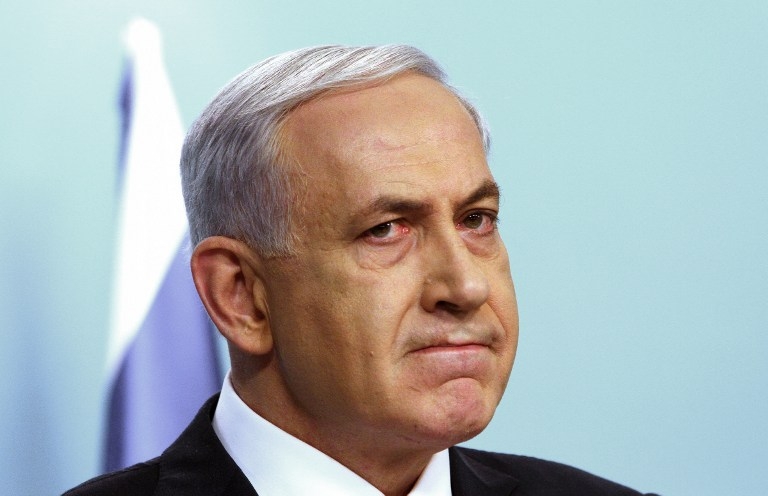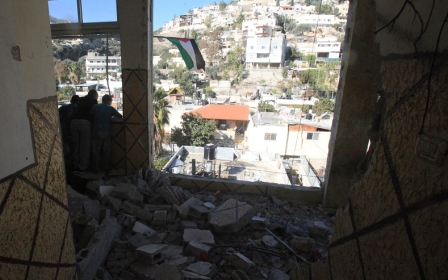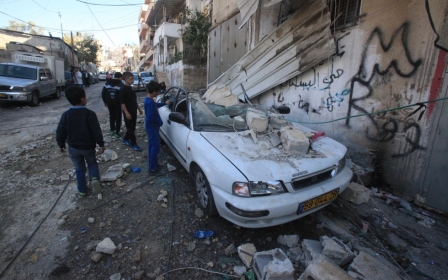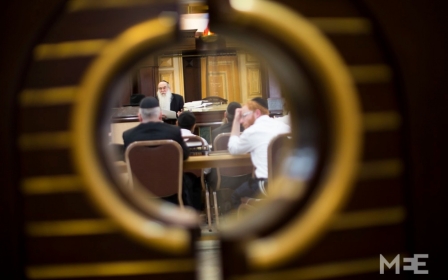A Netanyahu-shaped vacuum

For the first time in an unbroken five years in power, Israeli Prime Minister Benjamin Netanyahu seems completely at a loss of what to do. What has him stumped, for now, is not a diplomatic initiative by one of Israel’s allies, nor is it a violent provocation by a Palestinian paramilitary group. Rather, he is stumped by a series of seemingly uncoordinated actions by young Palestinian residents of Jerusalem. From what we know so far, although they probably shared lifelong frustration and despair from living under occupation, each was finally provoked by a different incident, whether Israeli incursions to Temple Mount or the suspicious death of a Palestinian bus driver. All ended up taking their own initiative to carry out brutal attacks against Israelis.
But while Netanyahu’s hesitation on how to respond seems to restrain Jerusalem from morphing into a variation of Belfast in the worst of the 1970’s, it also leaves a political and military vacuum that many other forces in Israeli society are eager to fill.
Netanyahu is stuck both for immediate response and for grand policy. As a man who built much of his career on vowing to keep East and West Jerusalem united as the capital of Israel, he can’t bomb Jerusalem like he would if the attacks came from the Gaza Strip - all the more so considering the Palestinian-majority East is increasingly infiltrated by Jewish settlers. He can’t build a wall separating the two parts of the city, both because such a wall has already been built, one that cuts through the Palestinian side of the city, leaving residents on either side of the imposing barrier.
Even the flying checkpoints set up between Jewish and Arab neighborhoods in Jerusalem are being mocked: the majority of the latest spate of attacks was carried out by Palestinians ramming their vehicles into Israeli bystanders, and it’s not clear how the intention to carry out an attack can be located in a car search; and banning Palestinians from driving altogether does not seem a realistic option even for such a right-wing government.
Finally, although the attacks have been tied in different ways to the conflict over the Temple Mount/Haram al-Sharif compound in the Old City of Jerusalem, Netanyahu for now seems to be very reluctant to use that incredibly sensitive patch of holy ground as an arena through which to retaliate. Although both sides have appealed to God in their war against each other and although Zionism can be accused of a very particular kind of Biblical literalism, the conflict has been an overwhelmingly secular one, over recognition, rights, sovereignty and land. Injecting it with new religious meaning just as a particularly nihilistic and ambitious brand of religious warfare is spreading across the Middle East is the last thing Israel needs at this point. To judge from the relatively toned-down rhetoric in the last two weeks, even the most right-wing members of Netanyahu’s cabinet seem to realise this.
Even the traditional accusations of Palestinian Authority President Mahmoud Abbas ring hollow, considering a succession of Israeli governments, including Netanyahu’s own has made it very certain that the PA has no foothold or control in East Jerusalem. It would logically follow Abbas cannot be credibly blamed for failing to prevent acts of violence emanating from this particular area of the West Bank.
So with no real political or military options immediately available, Netanyahu is choosing to walk loudly and carry a small stick. All of Israel’s actions in the past two weeks - checkpoints, arrests, house demolitions and announcements of new settlements - certainly have their impact, in some cases devastating ones for those who have the misfortune to experience them directly. But compared to the kind of all-out Israeli reactions we’ve seen in the summer, they feel like face-saving, a bare minimum the government can afford to do without being accused of not doing anything.
If this is the balance that Netanyahu is trying to strike, however, it isn’t working. If anything, it is creating a political vacuum into which vigilantes and second-league politicians are already jumping in. In the first 24 hours after the synagogue attack, Jerusalem has seen a frightening surge in communal violence - mostly by Jews on Palestinians, including reports of stabbings of one passersby and one pizzeria worker and live fire in the direction of a Palestinian teen, as well as an attack by a group of Palestinians on a Jewish man in the Old City. And this summer set a chilling precedent for a much more lethal type of tit-for-tat, with the killing of Palestinian teen Mohammed Abu Khdeir in reaction to the kidnapping and killing of three Israeli teenagers. Just as the Palestinian lone-wolf perpetrators are impossible to identify and preempt, so too are their Israeli counterparts.
As if rioting and vigilantism weren’t enough, some Israeli politicians and business owners were on the make Wednesday for easy political capital by fanning the flames of nationalist paranoia. A standout example was the Mayor of Ashkelon, Itamar Shimoni, who summarily fired all Arab construction workers employed on the city’s education institutions, but there are lists of small businesses that supposedly fired their Arab employees circulating on social networks and new names are being added by the hour. While several businesses issued denials that any workers were dismissed, the popularity and believability of such lists among Israelis are in themselves a cause for concern.
Shimoni’s crass maneuver was slapped down by virtually every important voice on the Israeli political spectrum, from the far left to the far right; even Habayit Hayehudi leader Naftali Bennett and, perhaps the most inflammatory member of Knesset, the Likud’s Miri Regev, lashed out against the move, decrying its racism and vowing to make sure it is overturned.
But even if the escalation is contained for now, it is increasingly clear that the control of both the Israeli government and their Palestinian counterparts - from politicians to paramilitary - over the course of events and the height of the flames has diminished significantly. At this stage, the players likeliest to seize the field are the most violent and least predictable on both sides of the conflict.
Middle East Eye propose une couverture et une analyse indépendantes et incomparables du Moyen-Orient, de l’Afrique du Nord et d’autres régions du monde. Pour en savoir plus sur la reprise de ce contenu et les frais qui s’appliquent, veuillez remplir ce formulaire [en anglais]. Pour en savoir plus sur MEE, cliquez ici [en anglais].





